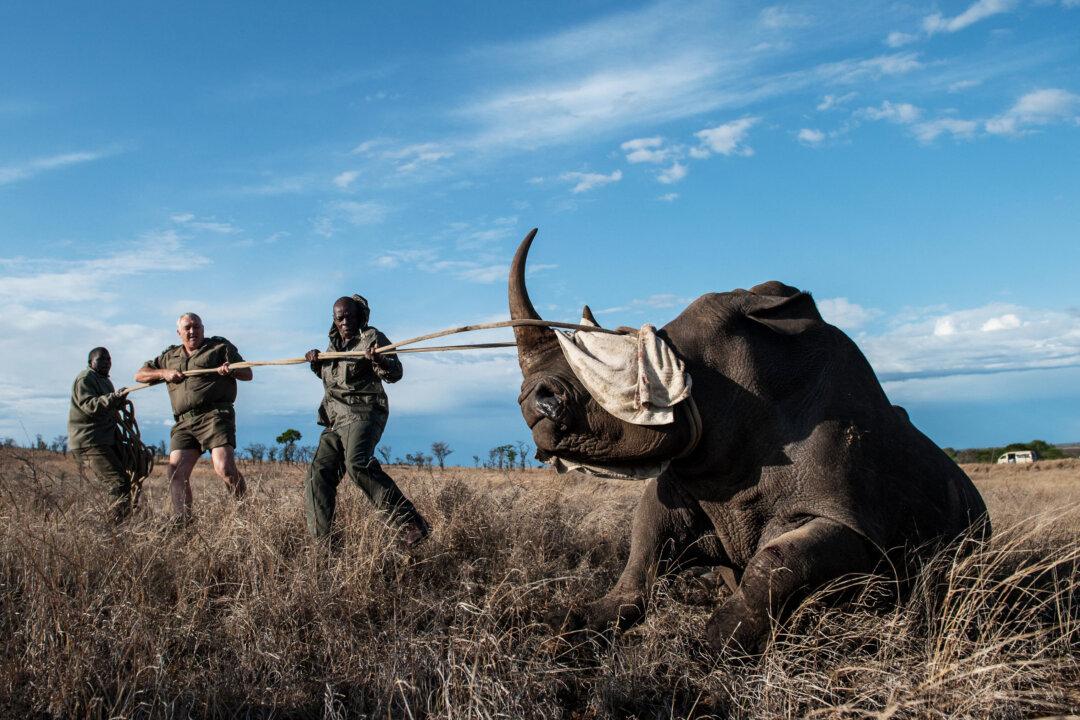JOHANNESBURG—A new report from European Union-funded international crime response group Enact states that organized crime groups from South Africa and China—in collaboration with corrupt wildlife officials—are “decimating” the population of big game animals in one of the world’s premier game reserves.
The Kruger National Park covers an area of almost 7,600 square miles across South Africa’s northeastern provinces of Limpopo and Mpumalanga, bordering Mozambique and Zimbabwe.





